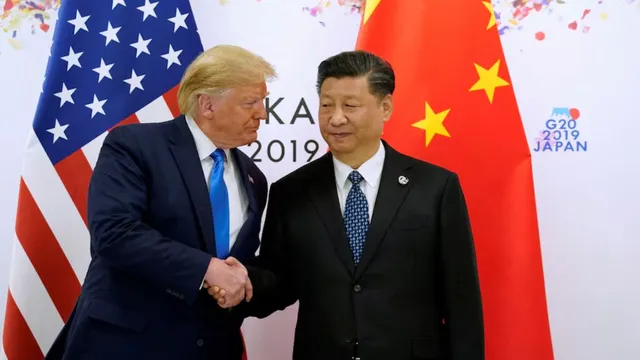- By Supratik Das
- Mon, 12 May 2025 01:31 PM (IST)
- Source:JND
In a major breakthrough to ease the long-standing US-China trade war, Washington and Beijing have agreed to cut reciprocal tariffs by 115 per cent and adopt a 90-day suspension of additional trade measures, US Treasury Secretary Scott Bessent said on Monday. The news came after high-level talks between Chinese and American officials in Geneva. Speaking after the meeting, Bessent said the deal represents a “mutual commitment to stabilize the global economy and restore confidence in international markets.” “This deal reflects weeks of intense diplomacy. Both nations recognize the need to cool tensions and promote predictable trade practices,” he stated.
The US-China trade war has shaken worldwide supply chains, raised consumer and business costs, and put uncertainty into global markets. The loosening of tariffs is expected to bring relief to major industries such as manufacturing, agriculture, and technology. Under a joint statement issued Monday in Geneva, Washington will lower its combined 145 per cent tariff on the majority of Chinese imports, including those that are fentanyl-related, to 30 per cent by May 14. Concurrently, Beijing will cut its duties on US products from 125 per cent to 10 per cent.
Temporary Truce, Uncertain Road Ahead
Since taking office in January, Trump has hiked the tariffs paid by US importers for goods from China to 145 per cent, in addition to those he imposed on many Chinese goods during his first term and the duties levied by the Biden administration. China hit back by putting export curbs on some rare earth elements, vital for US manufacturers of weapons and electronic consumer goods, and raising tariffs on US goods to 125 per cent.The tariff dispute brought nearly $600 billion in two-way trade to a standstill, disrupting supply chains, sparking fears of stagflation and triggering some layoffs.
Although the White House has referred to the deal as a "trade deal," the nuances are still unclear. Officials have confirmed a 90-day pause on further trade sanctions while both countries continue negotiations for a more inclusive resolution.
Also read: Did US Impose 245% Tariff On Chinese Imports? Beijing Addresses Specific Tax Rate Claims
Financial experts responded positively, with markets having been looking out for signs of a thaw in the trade war, and Wall Street stock futures climbed and the dollar firmed against safe haven peers on Monday as the talks boosted hopes that a global recession might be avoided. With both parties committing to keep talking, the next few months will be critical in determining whether this action results in a permanent agreement or turns into another deadlocked chapter in a multi-year trade standoff.
Also read: US-China Trade War: Beijing Suspends Delivery Of Boeing Jet To United States Amid Clash Over Tariff

